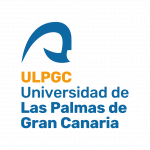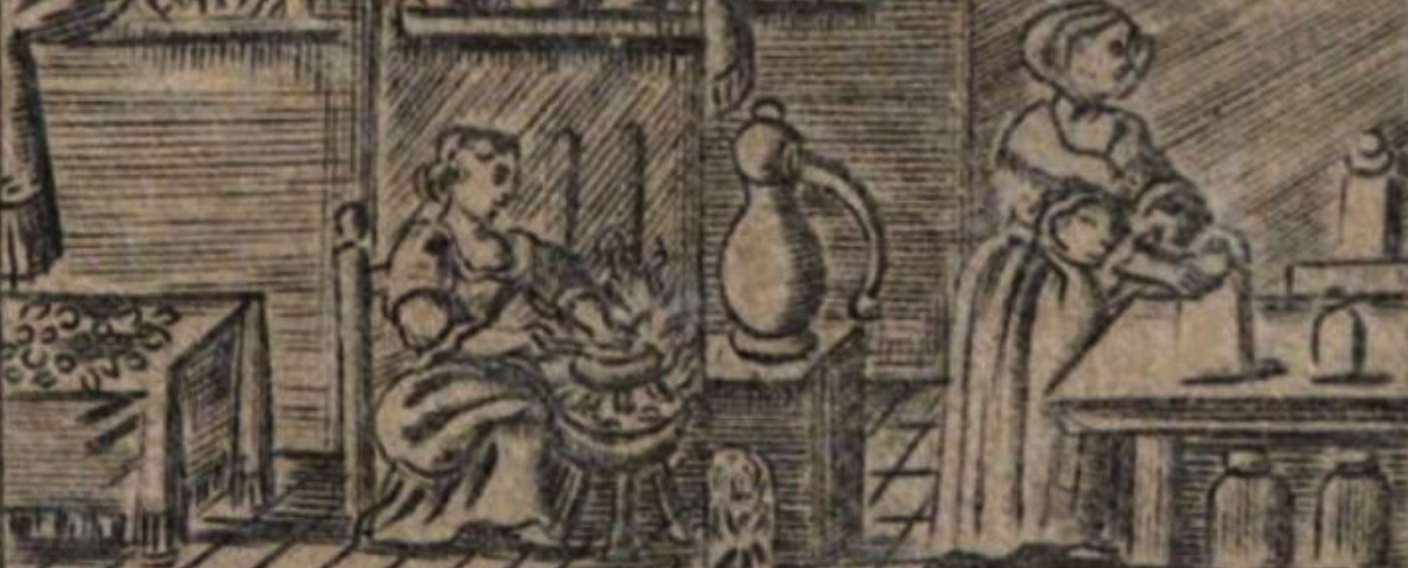Research project






Women instructive writing, 1550-1899
Interpersonal devices in specialized household and public instructional texts written by women in modern English (MINTEXTIM)

Funding
- Plan Estatal de Investigación Científica, Técnica y de Innovación 2021-2023. Ministerios de Ciencia e Innovación. Project reference: 125928NB-100. Start: 1 September 2022. End: 1 September 2025.
- This project was earlied funded by Agencia Canaria de investigación, innovación y sociedad de la información. Project reference: CEI2020-09. Start: 1 June 2022. End: 20 October 2022.
Our aim
The main purpose of the project presented here is the study of interpersonal mechanisms in specialised instructional texts written by women in modern English. The starting hypothesis is that the female writers in our corpus of instructional texts in modern English do indeed make use of interpersonal markers to indicate their point of view on any aspect of knowledge, which allows them to claim, and even assert, their position on traditionally male-dominated topics. In fact, as Ardington (2010: 127) points out in her study of conversational analysis in adolescent girls, the use of these mechanisms could also serve to empathise and negotiate attitudes during the communicative exchange, even contributing to the construction of their own identity as part of their community of practice. Conclusions along these lines can be drawn from the analysis of (im)politeness in texts written by women in seventeenth-century English by Alonso-Almeida and Álvarez-Gil (2022, text available online https://doi.org/10.1075/jhp.20004.alo from 23/11/2021), which shows that interpersonal markers of (im)politeness are essential for the development of argumentation and also to claim part of a territory that is largely alien to women, even if they are topics that they consider their own, as in the case of gynaecology (Alonso-Almeida and Sánchez 2016).
It is logical to think that, in addition to politeness, a web of relational marks is used which may or may not present variation according to situational and cultural (register and textual genre) and possibly temporal contextual variables. This hypothesis, although it reflects a linguistic fact to be expected in any speaker, does not rule out the possibility that women, depending on the time and their social situation, may use markers similar to those used by men, although it is expected that there is a set of markers, as seen in the aforementioned study by Alonso-Almeida and Álvarez-Gil (2022), which are specific to non-literary writing by women. All of this would allow us to show more clearly the role that women have historically played in the construction of scientific thought.
Our methods
Our method is based on the use of corpus linguistic tools to identify the use of interpersonal strategies in texts written by women, as well as statistical means to evaluate the findings. Our examination of manuscripts and printed sources also requires philological practices to ensure the correct reading of the texts. In addition, we also deploy sociolinguistic, pragmatic and discourse analysis methodology to adequately describe and justify the interpersonal patterns detected.
Evidence
Our data comes from a wide range of contemporary sources held in both digital and physical repositories. The data will be made accessible to the public when the time comes, once the group has collected and organised the data in a coherent way according to selected criteria. The group has the generous help and support of the University Library of Las Palmas de Gran Canaria to disseminate the data and to have control over its regulated use.
Contact
Name: Francisco Alonso-Almeida
Department: Department of Filología Moderna, Traducción e Interpretación
Address: c/ Perez del Todo, 1, E35003. Las Palmas de Gran Canaria, Universidad of Las Palmas de Gran Canaria, Spain
Project Team Members
Project leader: Dr. Francisco J. Alonso Almeida
Members:
- Dr. Francisco J. Álvarez Gil
- Dr. Isabel de la Cruz Cabanillas
- Dr. María José Gómez Calderón
- Dr. Concepción Hernández Guerra
- Dr. Ivalla Ortega Barrera
- Dr. Margarita Esther Sánchez Cuervo
- Dr. Elena Quintana Toledo
- Dr. Magdalena Bator
Participating universities:
-
Universidad de Las Palmas de Gran Canaria
-
Universidad de Alcalá
-
Wyzsza Szkola Bankowa w Poznaniu
-
Universidad de Sevilla
Some results: publications & presentations
- Alonso-Almeida, F. , & Quintana Toledo, E. (2024). Interpersonal metaphors and modulation in nineteenth-century women’s instructive writing. Comunicación presentada en el 33rd International European Functional Systemics Linguistics Conference, Timisoara, Rumanía.
- Alonso-Almeida, F. , & Quintana Toledo, E. (2024). Modal meanings in late modern English recipe collections. A gender-based perspective. Comunicación presentada en el 22nd International AELFE Conference, Budapest, Hungría.
- Alonso-Almeida, F. (2023). Stance matrices licensing that-clauses and interpersonal meaning in nineteenth-century women’s instructive writing in English. Language Value, 16(1), 116-144.
- Alonso-Almeida, F. (2024). Interpersonal justificatory marking in c19th women’s instructive writing. Comunicación presentada en el 22nd International AELFE Conference, Budapest, Hungría.
- Alonso-Almeida, F. (2024). Modality in nineteenth-century texts written by women. Comunicación presentada en el 33rd International European Functional Systemics Linguistics Conference, Timisoara, Rumanía.
- Alonso-Almeida, F. (2025, forthcoming). Estrategias de mitigación con ‘If you…’ en textos instructivos en lengua inglesa de los siglos XVIII y XIX escritos por mujeres. In M. L. Carrió-Pastor (Ed.),Title of the monograph pending. Octaedro.
- Alonso-Almeida, F. (2025, forthcoming). Gender-based evidence of modalisation and modulation strategies in nineteenth-century institution English recipes. In Brooks, G. & McEnery, T. (Eds.),Historical Medical Discourse: Corpus Linguistic Perspectives. Routledge.
- Alonso-Almeida, F. (2025). A diachronic account of modal verbs in women’s instructive writing (1700-1900). LCT (under consideration).
- Alonso-Almeida, F. J., Álvarez-Gil, F. J., Ortega-Barrera, I., Quintana Toledo, E., Sánchez Cuervo, M. E., Hernández Guerra, C., & de Armas, N. (2024). The Corpus of Women’s Instructive Texts in English (CoWITE). Actual findings and avenues for research. Comunicación presentada en el 15th International AELINCO Conference, Las Palmas de Gran Canaria, España.
- Alonso-Almeida, F., & Álvarez-Gil, F. J. (2023). Exploring gender-based variances in the use of modals as interpersonal cues in the modern English scientific register. En Libro de Actas de CUICIID 2023 (4-6 octubre 2023) [abstracts] (p. 770). XIII Congreso Universitario Internacional sobre la Comunicación en la profesión y en la Universidad de hoy: Contenidos, Investigación, Innovación y Docencia (CUICIID 2023). ISBN: 978-84-09-48185-9.
- Álvarez-Gil, F. J., & Sánchez Cuervo, M. E. (2023). Adverbial Relations in Women’s Writing: Insights from The Corpus of Women’s Instructive Writing in English, 1800-1899. En XIII Congreso Universitario Internacional sobre la Comunicación en la profesión y en la Universidad de hoy: Contenidos, Investigación, Innovación y Docencia (CUICIID 2023). Fórum Internacional de Comunicación y Relaciones Públicas (Fórum XXI).
- Álvarez-Gil, F. J., & Sánchez Cuervo, M. E. (2024). Cause, condition, and concession in a corpus of women’s instructive texts in 19th century English. In Peter Lang.
- Álvarez-Gil, F. J., & Soto Déniz, I. (2023). Analyzing Boosters in 19th-Century English Recipes Authored by Women: A Linguistic Study of Conviction and Authority. En II Congreso Internacional i-DEA (Investigación Didáctica y Estudios Curriculares Avanzados): Innovación y Transferencia en el marco de los ODS: Sociedad y Educación.
- Álvarez-Gil, F. J., & Soto Déniz, I. (2023). Modal Verbs and Women’s Roles: Unveiling 19th-Century Recipes’ Sociocultural Dynamics. En 2nd International Congress: Education and Knowledge (ICON-edu 2023). Octaedro.
- Álvarez-Gil, F. J., & Soto Déniz, I. (2024). Modal verbs and interpersonal meaning in 19th-century female instructive writing. EnBuilding Knowledge: Visions From Education And The Humanities. Peter Lang Publishing Group.
- Álvarez-Gil, F. J., & Soto-Déniz, I. (2024). Las ciencias sociales, las humanidades y sus expresiones artísticas y culturales: una tríada indisoluble desde un enfoque educativa [sic]. En B. Pizà Mir, M. del M. Suárez Vilagran, R. Gavilanes Pérez, H. Planisi Gili, I. Capriles González, C. Bauçà de Mirabò Gralla, & J. J. Matas Pastor (Coords.), Las ciencias sociales, las humanidades y sus expresiones artísticas y culturales: una tríada indisoluble desde un enfoque educativa (pp. 221–243). ISBN: 9788411705844.
- Álvarez-Gil, F. J., & Soto-Déniz, I. (2024). Lexical bundles in the Corpus of Women’s Instructive Texts in English (1550–1899). InInsights in (inter)cultural and cross-cultural communication. Tirant Lo Blanch.
- Álvarez-Gil, F. J., & Soto-Déniz, I. (2024). Lexical bundles in the Corpus of Women’s Instructive Texts in English (1550–1899). EnInsights in (inter)cultural and cross-cultural communication (pp. 325–338). Tirant Lo Blanch. ISBN: 9788411834377.
- Álvarez-Gil, F. J., & Soto-Déniz, I. (2024). Modal verbs and interpersonal meaning in 19th-century female instructive writing. In Peter Lang.
- Bator, M. (2023). ‘What Mrs Fisher knows about cooking’—On the titles of early American cookbooks. Language Value, 16(1), 23–41.
- Cruz Cabanillas, I. de la. (2023). Domestic Medicine in an Early Eighteenth-Century Manuscript, GUL, Ferguson 43.Revista Canaria de Estudios Ingleses, 87, 131–146. https://doi.org/10.25145/j.recaesin.2023.87.06
- Domínguez Morales, E. (2024). ‘It cannot certainly extend to the preserves’: Epistemic modals and post-verbal adverbials in the Corpus of Women’s Instructive Texts in English, 1800–1899. InInsights in (inter)cultural and cross-cultural communication. Tirant Lo Blanch.
- Francisco Alonso-Almeida; Conchi Hernández Guerra; Elena Quintana Toledo. Interpersonal justificatory marking in c19th women’s instructive writing. 22ND AELFE CONFERENCE 2024 Challenges of LSP teaching and research in the era of the language technological revolution. Fecha de celebración: 06/09/2024 – 08/09/2024. Institute of Languages for Specific Purposes Semmelweis University, Kozep-Magyarorszag, Hungría.
- Francisco Alonso-Almeida; Elena Quintana Toledo. Interpersonal metaphors and modulation in nineteenth-century women’s instructive writing. 33rd European Systemic Functional Linguistics Conference. Accessibility and Appliability in Systemic Functional Linguistics. Fecha de celebración: 10/07/2024 – 12/07/2024. Politehnica University Timisoara for European Systemic Functional Linguistics Association, Rumanía.
- Francisco Alonso-Almeida; Francisco Álvarez-Gil; Ivalla Ortega-Barrera; Elena Quintana Toledo; Conchi Hernández Guerra; Margarita E. Sánchez Cuervo; Néstor de Armas. The Corpus of Women’s Instructive Texts in English (CoWITE). Actual findings and avenues for research. Corpus Linguistics, (digital) discourse, and Al. Unlocking new horizons. 15th International Corpus Linguistics Conference CILC2024. Fecha de celebración: 22/04/2024 – 24/04/2024. Universidad de las Palmas de Gran Canaria, Canarias, España.
- Francisco Alonso-Almeida; Francisco Álvarez-Gil. Exploring gender-based variances in the use of modals as interpersonal cues in the modern English technical scientific register. 41 Congreso Internacional de la Asociación Española de Lingüística Aplicada (AESLA). Análisis del Discurso y Enseñanza de Lenguas en la Era de la Inteligencia Artificial. Fecha de celebración: 17/04/2024 – 19/04/2024. Universidad Politécnica de Valencia, Comunidad Valenciana, España.
- Francisco Alonso-Almeida. Evaluative language in medical recipes in C19th cookery books written by women. CHIMED-3. The third International Conference on Historical Medical Discourse. Fecha de celebración: 11/05/2023 – 12/05/2023. Lancaster University, London, Inner London, Reino Unido.
- Francisco Alonso-Almeida. Evaluative matrices and impoliteness in the Corpus of Women’s Instructive Texts in English (1800-1899). 14th Symposium on Politeness (SymPol 2023). Fecha de celebración: 03/07/2023 – 06/07/2023. Universidade da Madeira, Funchal, Região Autónoma da Madeira, Portugal.
- Francisco Alonso-Almeida. Modality in nineteenth-century texts written by women. 33rd European Systemic Functional Linguistics Conference. Accessibility and Appliability in Systemic Functional Linguistics. Fecha de celebración: 10/07/2024 – 12/07/2024. Politehnica University Timisoara for European Systemic Functional Linguistics Association, Rumanía.
- Ortega-Barrera, I. (2024). Aubergine or eggplant? Interculturality in 19th-century recipe books written by women. InInsights in (inter)cultural and cross-cultural communication. Tirant Lo Blanch.
- Quintana Toledo, E. (2024). Epistemic stance adverbs in nineteenth-century women’s specialised writing in British and American English. InInsights in (inter)cultural and cross-cultural communication. Tirant Lo Blanch.
- Sánchez Cuervo, M. E. (2023). Contrastive relational markers in women’s expository writing in nineteenth-century English.Language Value, 16(1), 42–67. https://doi.org/10.6035/languagev.7228
- Sánchez Cuervo, M. E. (2023). Interpersonal Value of Conditional Sentences in Women’s Instructive Writing in the XIX century. En 46th International Conference of AEDEAN.
- Sánchez Cuervo, M. E. (2023). Interpersonal Value of Conditional Sentences in Women’s Instructive Writing in the XIX century. Comunicación presentada en el 46th International Conference of AEDEAN, Las Palmas de Gran Canaria, España.
- Sánchez Cuervo, M. E., & Álvarez-Gil, F. J. (2025). Cause, condition and concession in a corpus of women’s instructive texts in 19th-century English. En T. Brandariz Portela, X. Martínez Rolán, & V. Sánchez Rodríguez (Eds.), Desde la óptica del género: el género como perspectiva (Número 4 de CSEA-H / Ciencias Sociales en Abierto). Peter Lang.

An illustration from a 1677 cookery book frontispiece (T.P. The Accomplish’d Ladyes Delight).